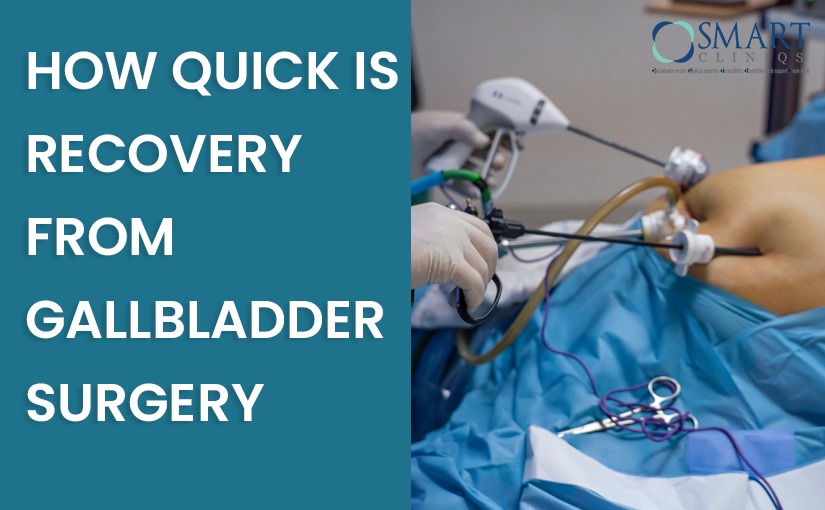If you’re facing hernia surgery, one question that may be on your mind is: Can hernia surgery cause erectile dysfunction? It’s a concern that many patients have, but fortunately, the answer isn’t as complicated as it seems. As a Hernia Surgeon in Delhi, I’ve worked with many patients who have shared similar worries. Today, I want to help you understand the relationship between hernia surgery and erectile dysfunction, providing you with clear, helpful insights to ease your concerns.
What is a Hernia and Why is Surgery Often Necessary?
A hernia occurs when an organ or tissue pushes through a weak spot in the surrounding muscle or connective tissue. Common types of hernias include inguinal (groin), umbilical, incisional, and hiatal hernias. If you experience a hernia, especially in the abdominal or groin area, surgery is often recommended to avoid complications, such as strangulation or obstruction of the intestines.
The most common surgical approach is a procedure called hernioplasty or hernia repair surgery, which can be done through traditional open surgery ora minimally invasive robotic and laparoscopic approach. Both methods are aimed at reinforcing the weakened area of the abdominal wall and preventing the hernia from recurring.
However, when any surgery is performed in the lower abdomen or groin area, concerns about potential complications, such as erectile dysfunction, often arise.
Can Hernia Surgery Cause Erectile Dysfunction?
Now, let’s address the big question: Can hernia surgery cause erectile dysfunction? The short answer is: it’s rare, but it’s possible. Let’s break this down further.
1. The Role of Nerves in Hernia Surgery
Erectile dysfunction (ED) refers to the inability to achieve or maintain an erection sufficient for sexual intercourse. The cause of ED can be physical, psychological, or a combination of both.
In the case of lower abdominal hernia surgery, the concern about ED arises from the proximity of certain nerves that control sexual function. Specifically, the genital branch of the genitofemoral nerve, which supplies sensation to the groin and penis, runs through the area where lower abdominal hernia surgery is typically performed. In some rare cases, if these nerves are damaged or irritated during the procedure, it can lead to temporary or, in very rare cases, permanent erectile dysfunction.
However, it’s important to note that the risk of this happening is extremely low when the surgery is performed by a skilled and experienced Hernia Surgeon in Delhi like myself. During surgery, we take great care to avoid damaging these important nerves. Furthermore, the laparoscopic technique for hernia surgery, which uses smaller incisions and specialized instruments, tends to reduce the risk of nerve damage and complications, including erectile dysfunction.
2. Impact of Anesthesia on Erectile Function
Another consideration when it comes to hernia surgery and erectile dysfunction is the use of anesthesia. During surgery, general anesthesia or regional anesthesia is used to keep you comfortable and pain-free. While anesthesia is crucial for the success of the procedure, it can temporarily affect nerve function and circulation.
For example, some men may experience transient erectile dysfunction after surgery due to the effects of anesthesia on the nervous system or blood flow. This is typically a very short-term issue that resolves on its own within a couple of days as the body fully recovers from the anesthesia.
3. Post-Surgery Recovery and Erectile Function
After hernia surgery, it’s common to experience some discomfort, swelling, or bruising around the surgery site. These symptoms are generally temporary and subside as the body heals. However, the physical and emotional stress of recovering from surgery can also affect sexual health temporarily.
The key here is patience and communication with your doctor. For most patients, erectile dysfunction is not a long-term issue, and with time and proper care, sexual function typically returns to perfectly normal. Once the hernia is repaired and the body has healed, many men experience improvements in their sexual health due to the relief from hernia pain and discomfort.
How to minimize the Risk of Erectile Dysfunction After Hernia Surgery
While the risk of erectile dysfunction after hernia surgery is relatively very low, there are a few steps you can take to minimize the chance of complications and ensure a smooth recovery. Here are some tips:
1. Choose a Skilled Hernia Surgeon
One of the most important factors in preventing complications after hernia surgery, including erectile dysfunction, is choosing a highly skilled and experienced Hernia Surgeon in Delhi. A surgeon with experience and expertise in performing hernia repairs will understand the anatomy and risks involved and will take great care to avoid nerve damage and other complications.
2. Follow Post-Surgery Care Instructions
After surgery, it’s essential to follow the post-operative care instructions provided by your surgeon. This includes taking prescribed medications, avoiding heavy lifting or strenuous activity, and attending follow-up appointments. Proper recovery minimizes the risk of complications and ensures that your body heals properly.
3. Be Patient and Communicate with Your Doctor
As with any surgery, recovery from hernia surgery can take time. If you experience any changes in sexual function after surgery, it’s important to be patient and communicate openly with your doctor. In most cases, erectile dysfunction after hernia surgery is temporary and resolves as the body heals.
If the issue persists beyond the expected recovery period, your Surgeon can investigate further and recommend appropriate treatments to address the issue.
4. Maintain a Healthy Lifestyle
Maintaining a healthy lifestyle can also help improve your recovery and prevent complications like erectile dysfunction. Eating a balanced diet, exercising regularly, and managing stress can all promote better circulation, nerve health, and overall well-being, which in turn supports sexual health.
When Should You Be Concerned about Erectile Dysfunction After Hernia Surgery?
While temporary erectile dysfunction is not uncommon after surgery, there are a few signs that may indicate a more serious issue that requires medical attention. If you experience any of the following, you should reach out to your Surgeon:
- Persistent erectile dysfunction that lasts beyond the typical recovery period.
- Pain or discomfort in the groin or pelvic area that affects sexual function.
- Difficulty achieving or maintaining an erection despite other efforts to recover.
In these cases, your doctor may recommend additional tests or treatments to address the underlying cause of erectile dysfunction.
Conclusion
If you’re concerned about erectile dysfunction or any other complications related to hernia surgery, it’s important to speak openly with your surgeon. Communication is key to ensuring a smooth recovery and addressing any concerns you may have. At the end of the day, hernia surgery is intended to improve your quality of life by resolving the pain and discomfort caused by the hernia. If you’ve been living with hernia pain, the surgery may be the solution you’ve been waiting for. If you’re considering surgery or if you have more questions about the process, don’t hesitate to reach out to a trusted Hernia Surgeon in Delhi. I’m here to help you every step of the way, ensuring that you get the best care and experience the fastest recovery possible.








